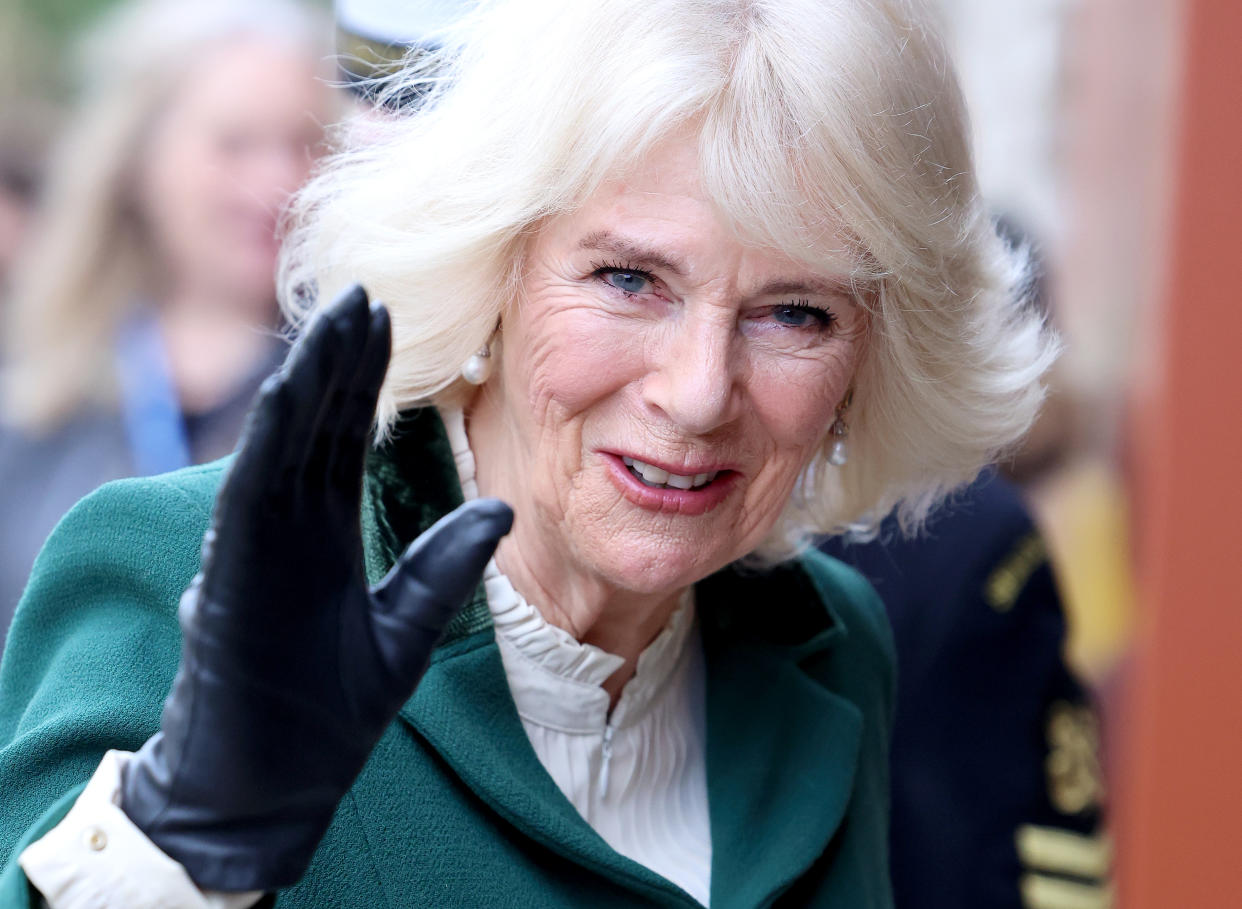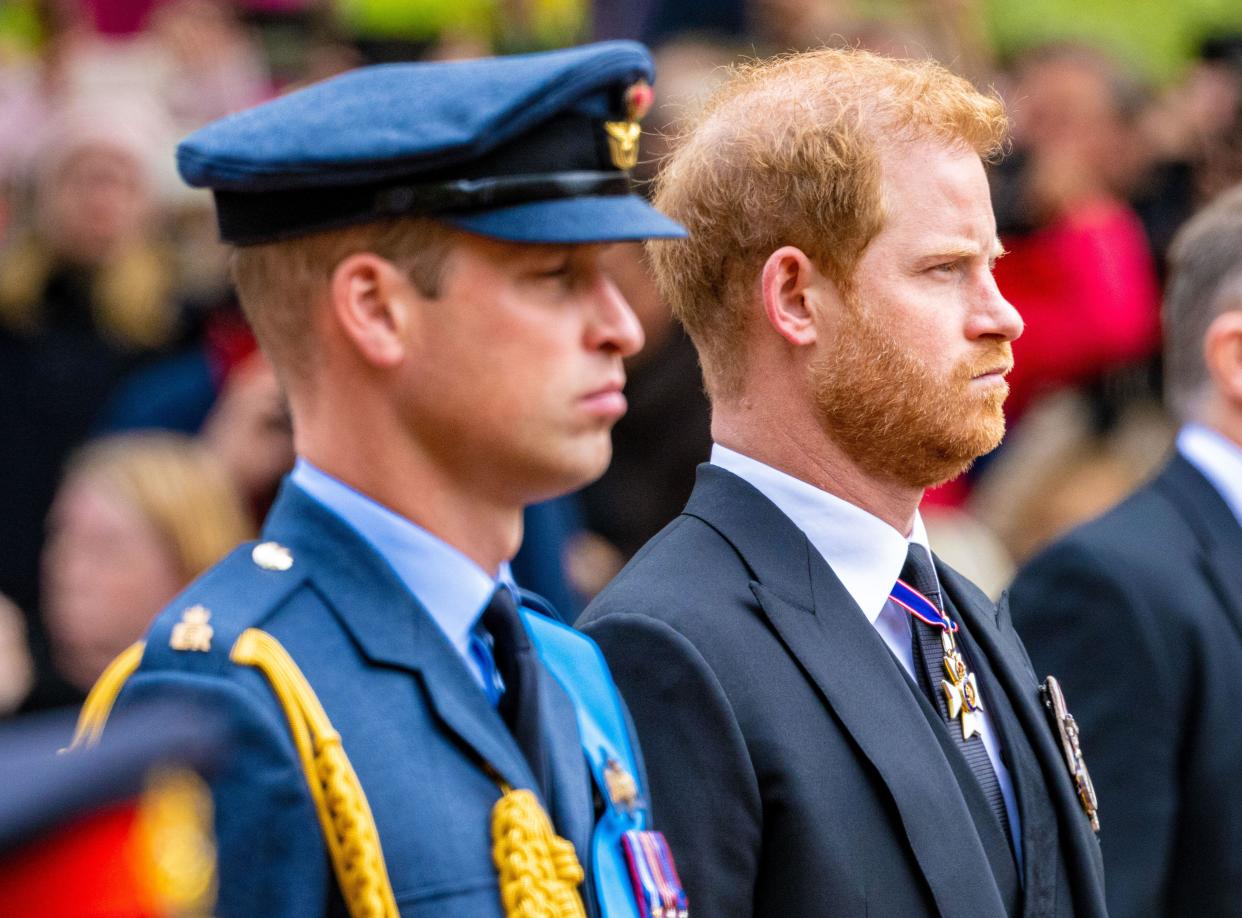Who are the counsellors of state and what happens if King Charles cannot work?

Following the news that the King Charles has been diagnosed with cancer and is undergoing treatment for the disease, questions have been raised about who could fill in for the monarch if he became too unwell to work.
Buckingham Palace has not revealed what type of cancer the 75-year-old monarch has. Charles recently visited the London Clinic private hospital for an enlarged prostate. The palace has said he does not have prostate cancer, with a spokesperson saying a "separate issue of concern was noted" at the clinic and that subsequent tests "identified a form of cancer".
It is understood Charles will continue some of his private duties while receiving treatment, including official state business and official papers carried in the monarch's famous red boxes, but he will have to take a step back from public life.
After succeeding his mother Queen Elizabeth II, Charles vowed to slim down the size of the working royal family to a smaller core group, who will now have to fill in for the monarch. Here, Yahoo News explains how that might work.
Recommended reading
What is abdication of the throne? What would happen if King Charles III stepped down?(Evening Standard)
What is an investiture? Prince of Wales to carry out duty at Westminster (Evening Standard)
Who are the counsellors of state?
In the event that the King cannot undertake his official duties as sovereign, due to illness or absence abroad, two or more counsellors of state are appointed to act in his place.
This is done through something called a Letter Patent, which is an official written order issued by the sovereign. By law, counsellors of state include the monarch's spouse and the next four people in the line of succession who are over the age of 21, according to the Royal Family's website.
This means the current counsellors of state are Queen Camilla; William, the Prince of Wales; Harry, the Duke of Sussex; Andrew, the Duke of York and Princess Beatrice. In 2022, the King asked parliament to add his youngest brother, the Duke of Edinburgh, and sister, the Princess Royal, as extra counsellors of state so they can deputise if needed, and the addition was fast-tracked into law.

The legislation did add Anne and Edward to the list, but stopped short of removing Andrew and Harry. However, the House of Lords heard only “working members” of the royal family would be called upon to act as counsellors of state. The Duke of Sussex is flying to London to be with his father after the King’s shock cancer diagnosis. However, Harry is not expected to take up any royal duties.
What do the counsellors of state do?
Counsellors of state are authorised to carry out most of the monarch's official duties, for example, attending Privy Council meetings, signing routine documents and receiving the credentials of new ambassadors to the United Kingdom.
However, there are some core constitutional functions that they may not be given clearance to carry out. These include Commonwealth matters, the creation of peers, appointing a prime minister and the dissolving of parliament (on the King's express instruction).
Charles and William jointly performed the state opening of parliament in place of the late Queen as counsellors of state in 2022. Provisions for counsellors of state are made under the Regency Acts 1937 to 1953.

What is a regency, and would it make William king?
A period of regency allows the King to transfer his powers as monarch to the Prince of Wales without having to abdicate. A regency is a longer-term solution than temporary counsellors of state.
If this happened, Charles would still be king and head of state, but, as mentioned, William would simply be able to perform many of the same functions as the monarch.
The Regency Act 1937 states that the monarch’s duties will be performed by a regent if the monarch is declared to be “by reason of infirmity of mind or body” incapable of performing royal functions, or if there is “evidence that the sovereign is for some definite cause not available for the performance of those functions”.
This must be declared in writing by three or more out of the following: the sovereign’s wife the Queen, the Lord Chancellor, the speaker of the House of Commons, the Lady Chief Justice and the Master of the Rolls. Charles has no say and does not need to agree with their decision.
The process is reversible, meaning if the monarch's health recovers and they are able to carry out royal functions, the sovereign can resume their usual duties.
Are there any limits to what William could do as a Prince Regent?
William would not be allowed to give assent to any Bill which changes the order of the succession to the throne.
He would also not be allowed to repeal or alter an Act made in Scotland entitled “An Act for Securing the Protestant Religion and Presbyterian Church Government”. The 1707 Act ensured in pre-Union Parliament of Scotland that the status of the Church of Scotland is not be affected by the Union with England.
William would not be prince regent of the 14 other nations whose head of state is King Charles, according to constitutional expert Professor Vernon Bognador, who says these countries would make their own arrangements.
Who was the last prince regent?
The last regent was the future George IV who became prince regent through an ad hoc Regency Act in 1811 when his father George III was declared mentally unfit to be king.
The vain prince regent, famously characterised by Hugh Laurie in the sitcom Blackadder III, was known for his heady extravagance, which was a constant source of gossip.
He was an important artistic patron, acquiring an impressive collection of art and patronising architects and designers, and later commissioned the Royal Pavilion in Brighton to be built as his seaside pleasure palace. He was regent for nine years before becoming king when his father died in 1820.


